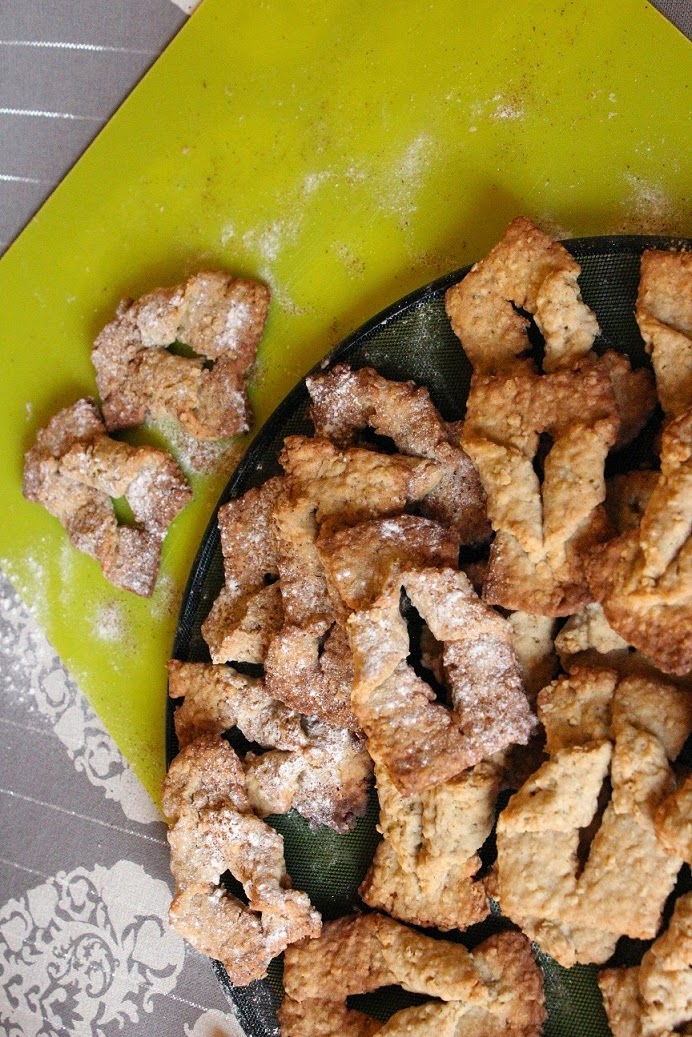The shortest day of the year is over and on the first day of astronomical winter the snow finally came making the day brighter and magical. Last night I was walking in Tallinn old town with my dear friend Piret. Fresh snow was falling, children were throwing themselves into the snow and both of us sighed wishing we had more suitable clothes on to join them and make a proper snowman.
 |
| Let it snow! Let it snow! Let it snow! |
 |
| Tallinn old town |
We exchanged the opposite views of Christmas being too commercial, the pain of listening to Jingle Bells all day in every shop versus how beautiful and essentially good the messages of the songs were and how nice it was to sing along to a catching melody of Rudolph and its shiny nose on the mission to guide Santa´s sleigh or seeing Mommy tickle Santa last night. Later on in the car we both agreed that Wham´s Last Christmas is not bad at all.
 |
| My Christmas cookies 2014 |
At the end of the year there are many different traditions of giving presents. The Dutch, Germans and Swiss have Nikolaus come by with presents on the 6th December, in the UK and US it is the 25th of December, in the Spanish speaking countries you have to wait until the Three Kings come in January....and many many others depending on the calendar and religion.
In Estonia small elves start dropping small presents into the shoes that children have placed on the windowsills as early as late November, early December. The main Santa Claus visit falls on the Christmas Eve on the 24th December.
Traditionally in Estonia a little effort is required and you have to do something special to get a present. Reading a poem, singing a song, dancing with your Mom, guessing a riddle or some other little performance, as amateur or professional as it may be, would usually be enough.
This year I have an old poem I used to know in my childhood. A friend of mine recently reminded me about this one. It talks about a dog whose name is Muri, who doesn´t let strangers in but wags its tail friendly when Santa Claus comes.
The best things in life are free and can be practiced and shared all year round. One can even listen to Christmas songs in June :)
Give someone a free hug, read a children´s poem, stay healthy and positive and be good for goodness sake!
Happy holidays!
(No recipe today as Mom is cooking)
Meie Muri
Küll on kuri meie Muri
Võõraid tuppa ta ei lase
Esikus just ukse taga
on tal pehme ase
Jõuluvana koputab
Mida teeb nüüd Muri?
Muri saba liputab
Pole üldse kuri
Rõõmsalt talle vastu ruttab
nagu oleks vana tuttav







